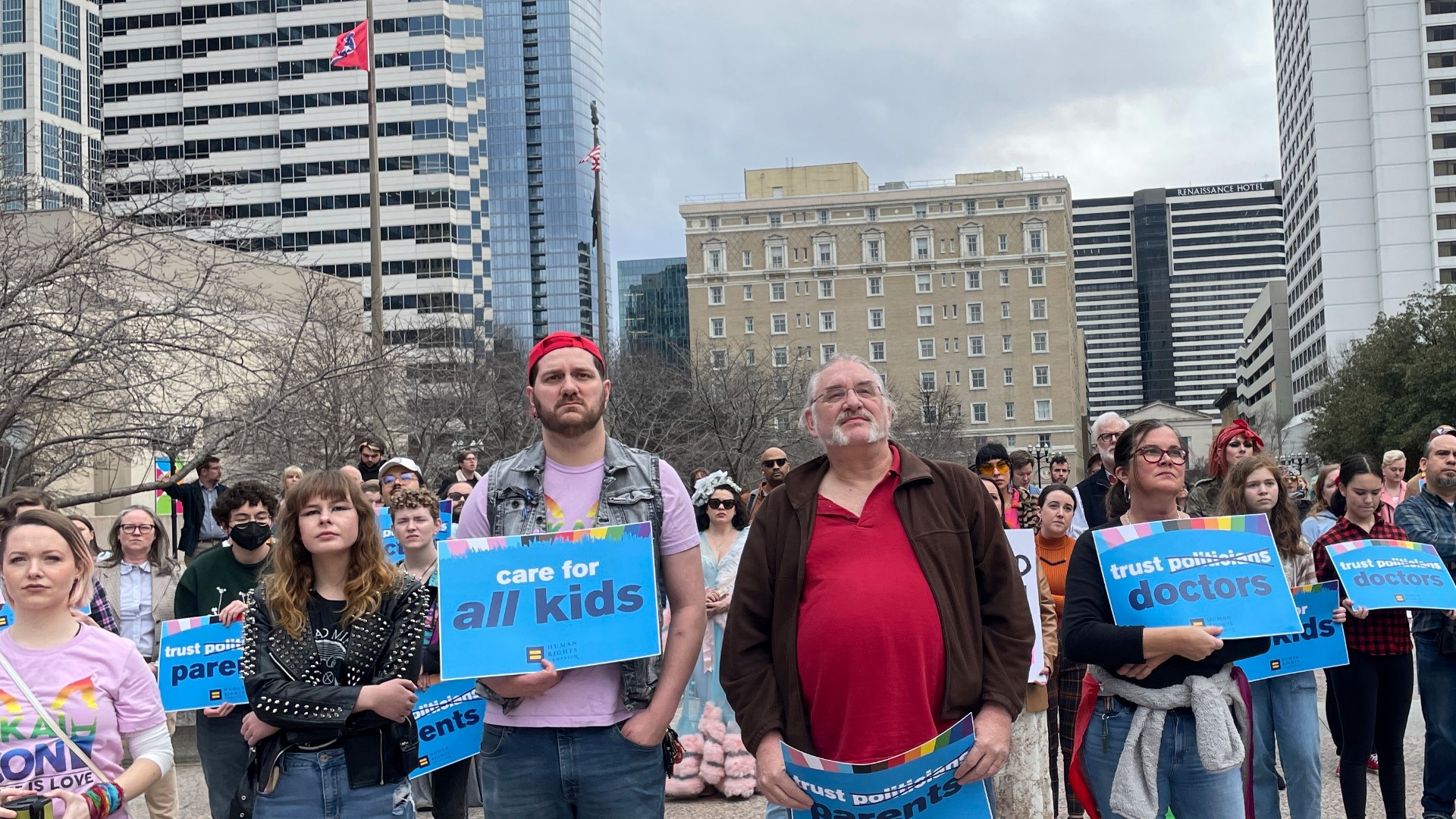Tennessee's ban on gender-affirming care for transgender youth can go into effect — at least for now — after a federal appeals court on Saturday temporarily reversed a lower court ruling.
Last month, a district court judge in Tennessee found that the state's new law banning transgender therapies like hormone blockers and surgeries for transgender youth was unconstitutional because it discriminated on the basis of sex. The judge blocked large swaths of the law from taking effect.
On Saturday, however, the Sixth U.S. Circuit Court of Appeals in Cincinnati granted an emergency appeal from Tennessee.
In a 2-1 ruling, the majority wrote that decisions on emerging policy issues like transgender care are generally better left to legislatures rather than judges.
“Given the high stakes of these nascent policy deliberations — the long-term health of children facing gender dysphoria — sound government usually benefits from more rather than less debate,” wrote Chief Judge Jeffrey Sutton, an appointee of former President George W. Bush.
Tennessee’s attorney general, Jonathan Skrmetti, praised the ruling, saying the ban can now be fully enforced.
“The case is far from over, but this is a big win,” he said in a statement.
The ruling is preliminary, and remains in force only until the appeals court conducts a full review of the appeal. Sutton wrote that the appeal process will be expedited, with a goal of resolving the case by Sept. 30.
Tennessee is one of at least 20 states across the country that have recently enacted bans or restrictions on gender-affirming care for minors. Federal judges in Indiana and Kentucky have blocked those laws from taking effect, while a judge in Arkansas struck down that state's law.
Sutton acknowledged that other judges have ruled differently.
“We appreciate their perspectives, and they give us pause,” he wrote. “But they do not eliminate our doubts.”
Judge Amul Thapar, an appointee of former President Donald Trump, joined White's ruling. A third judge, Helene White, dissented in part and concurred in part.
White — who was first nominated by former President Bill Clinton and later nominated by Bush — ruled that she believes the Tennessee law is likely unconstitutional, but said she would not have applied her ruling statewide, as the district court did.
She said she would have limited her ruling to apply only to the nine plaintiffs who filed the lawsuit and to the Vanderbilt University Medical Center, where some of the plaintiffs had sought care.
“I fail to see how the state can justify denying access to hormone therapies for treatment of minor Plaintiffs’ gender dysphoria while permitting access to others, especially in light of the district court’s robust factual findings on the benefits of these treatments for transgender youth,” White wrote.
Gillian Branstetter, a spokesperson with the American Civil Liberties Union, said the Sixth Circuit is the first federal circuit to allow a ban on transgender health care for minors to go into effect. The Sixth Circuit covers Michigan, Ohio, Tennessee and Kentucky.
The ACLU, its Tennessee chapter and two law firms called Saturday’s ruling “beyond disappointing and a heartbreaking development.”
“As we and our clients consider our next steps, we want all the transgender youth of Tennessee to know this fight is far from over and we will continue to challenge this law until it is permanently defeated,” the joint statement said.
The federal government has also filed its own challenge to the Tennessee law.
The law bans health care providers in the state from offering hormone treatments or surgeries for transgender youth where the purpose is to allow the child to express a gender identity “inconsistent with the immutable characteristics of the reproductive system that define the minor as male or female.”
Tennessee’s Republican-dominant General Assembly, as well as some Democratic lawmakers, passed the law after Vanderbilt University Medical Center was accused of opening its transgender health clinic because it was profitable.
Videos surfaced of a doctor there touting that gender-affirming procedures are “huge money makers.” Another video showed a staffer saying anyone with a religious objection should quit.
In Memphis, the executive director of nonprofit OutMemphis described the decision as "state-sanctioned cruelty against Tennessee families, who are only seeking health care for their kids as best they can."
"They’ve faced unrelenting confusion and heartbreak this year because they’re afraid the state will take away their ability to live free and happy lives in the Volunteer State," Molly Quinn said. "We are doubling down on navigation services and support for trans youth and their families. Don’t give up. OUTMemphis is behind you in this fight, and we won’t stop until Tennessee is a safe and affirming state.”
___
Associated Press writer Jonathan Mattise contributed to this report from Nashville, Tennessee.

